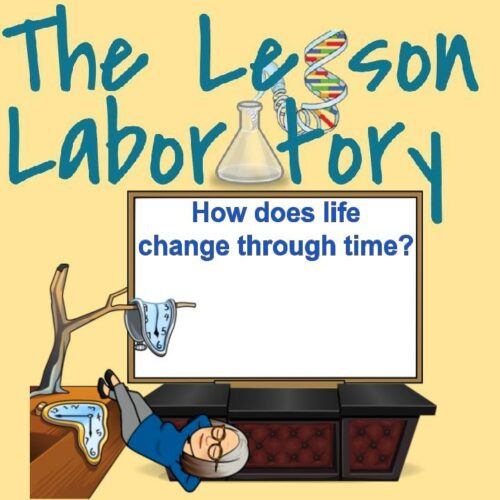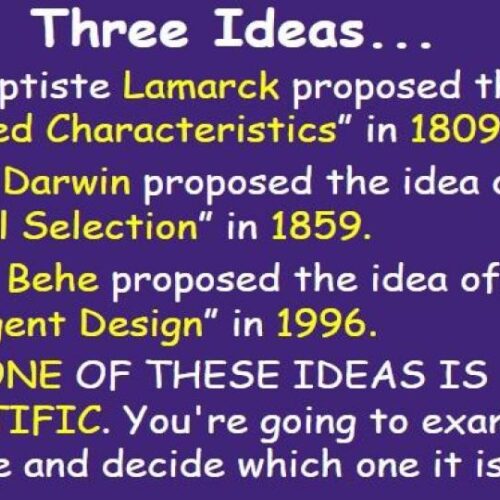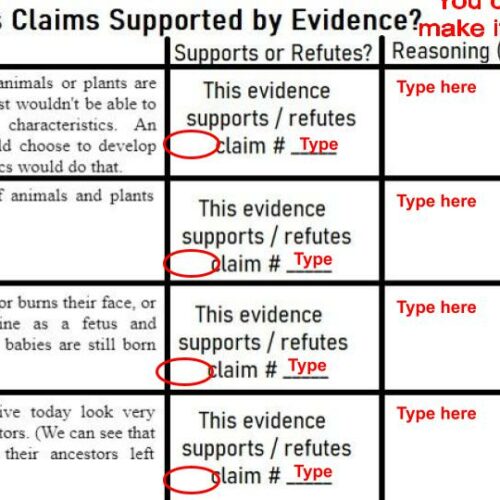Details
Languages
English
Grade
9th, 10th, 11th, 12th
Resource Type
Activities, Interactives
Product
Digital
Pages
25 Pages
Subject
Science, Biology
Standard
Next Generation Science Standards
Description
Embark on an Enlightening Journey into Evolutionary Science!
🌿 Revolutionize Your Learning Experience: This Google Slides lesson is excellently designed to be the gateway to your exploration of evolution. Dive into a thought-provoking session that challenges students to delve into the philosophy of science, empowering them to discern between scientific ideas and unsupported claims.
🔍 Unveiling the Scientific Method:
📚 Foundations of Science: Begin by understanding the essence of scientific inquiry " it must be testable and grounded in evidence. Engage with four thought-provoking statements, discerning which qualify as true science.
🧩 Evidence for Evolution: Leverage previous knowledge as students compile a compelling list of evidence supporting the concept of evolution " the unifying principle of change over time.
🦒 Long Necks and Evolutionary Visionaries: Explore the perspectives of Lamarck, Darwin, and Behe, dissecting how each might elucidate the intriguing phenomenon of giraffes' long necks.
🐆 Deciphering Adaptations: Further distinguish these theories by unraveling how each would rationalize four captivating adaptations: cheetah speed, sperm whale lung capacity, butterfly spots, and octopus intelligence.
🧐 Testing Lamarck's Claims: Scrutinize the evidence and determine if it supports or counters Lamarck's assertions. Articulate your reasoning and ascertain whether Lamarck's ideas align with the scientific method.
📊 Evaluating Darwin's Insights: Analyze the evidence and assess if it bolsters or undermines Darwin's propositions. Justify your assessments and conclude whether Darwin's ideas stand the test of scientific scrutiny.
🎩 Contemplating Intelligent Design: Examine the evidence and judge if it substantiates or challenges Behe's theories regarding intelligent design. Elucidate your analyses and make a determination on the scientific validity of Behe's concepts.
🌟 The Science of Selection: Conclude your exploration with a resounding realization - among Lamarckism, natural selection, and intelligent design, only Darwin's ideas emerge as truly scientific, grounded in testable concepts and supported by evidence.
🧠 Empowering Critical Thinking: This lesson transcends rote learning, fostering a deep understanding of evolutionary science and the fundamental principles that underpin scientific inquiry.
🚀 Begin Your Evolutionary Quest: Thank you for choosing us as your partners in scientific discovery. Embrace this enlightening journey, and watch as your students' understanding of evolution reaches new heights. Happy learning!
🌿 Revolutionize Your Learning Experience: This Google Slides lesson is excellently designed to be the gateway to your exploration of evolution. Dive into a thought-provoking session that challenges students to delve into the philosophy of science, empowering them to discern between scientific ideas and unsupported claims.
🔍 Unveiling the Scientific Method:
📚 Foundations of Science: Begin by understanding the essence of scientific inquiry " it must be testable and grounded in evidence. Engage with four thought-provoking statements, discerning which qualify as true science.
🧩 Evidence for Evolution: Leverage previous knowledge as students compile a compelling list of evidence supporting the concept of evolution " the unifying principle of change over time.
🦒 Long Necks and Evolutionary Visionaries: Explore the perspectives of Lamarck, Darwin, and Behe, dissecting how each might elucidate the intriguing phenomenon of giraffes' long necks.
🐆 Deciphering Adaptations: Further distinguish these theories by unraveling how each would rationalize four captivating adaptations: cheetah speed, sperm whale lung capacity, butterfly spots, and octopus intelligence.
🧐 Testing Lamarck's Claims: Scrutinize the evidence and determine if it supports or counters Lamarck's assertions. Articulate your reasoning and ascertain whether Lamarck's ideas align with the scientific method.
📊 Evaluating Darwin's Insights: Analyze the evidence and assess if it bolsters or undermines Darwin's propositions. Justify your assessments and conclude whether Darwin's ideas stand the test of scientific scrutiny.
🎩 Contemplating Intelligent Design: Examine the evidence and judge if it substantiates or challenges Behe's theories regarding intelligent design. Elucidate your analyses and make a determination on the scientific validity of Behe's concepts.
🌟 The Science of Selection: Conclude your exploration with a resounding realization - among Lamarckism, natural selection, and intelligent design, only Darwin's ideas emerge as truly scientific, grounded in testable concepts and supported by evidence.
🧠 Empowering Critical Thinking: This lesson transcends rote learning, fostering a deep understanding of evolutionary science and the fundamental principles that underpin scientific inquiry.
🚀 Begin Your Evolutionary Quest: Thank you for choosing us as your partners in scientific discovery. Embrace this enlightening journey, and watch as your students' understanding of evolution reaches new heights. Happy learning!
Embark on an Enlightening Journey into Evolutionary Science! 🌿 Revolutionize Your Learning Experience: This Google Slides lesson is excellently designed to be the gateway to your exploration of evolution. Dive into a thought-provoking session that challenges students to delve into... more
0
Overall review score
Displaying All Reviews | 0 Reviews
0
0%
0
0%
0
0%
0
0%
0
0%
More from this shop
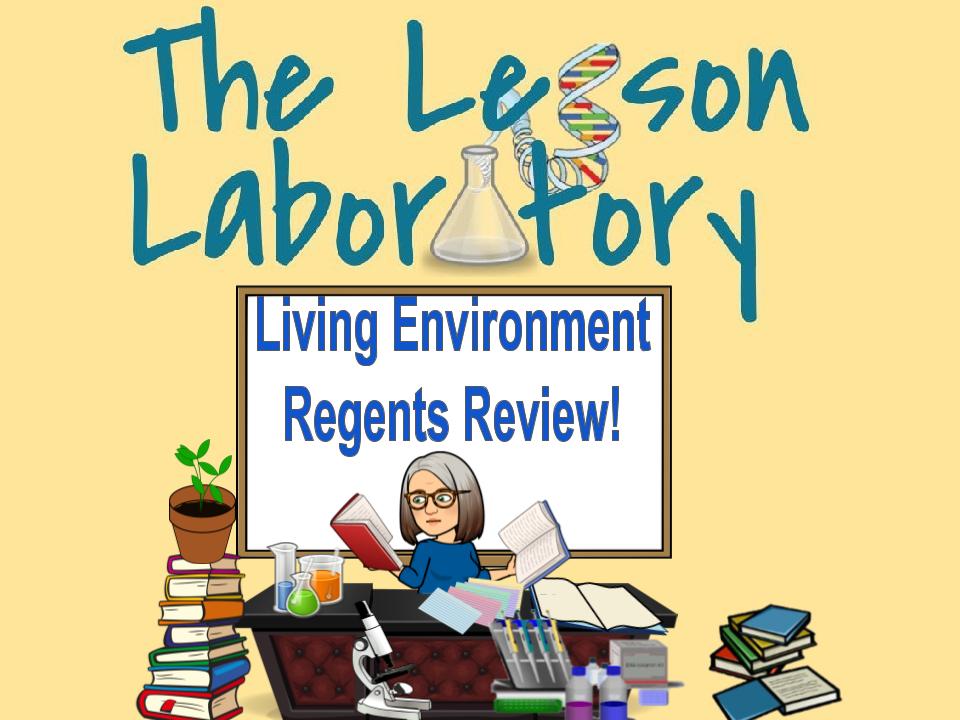
5
(1)
$28.55
$28.55
-20% Off
$13.99
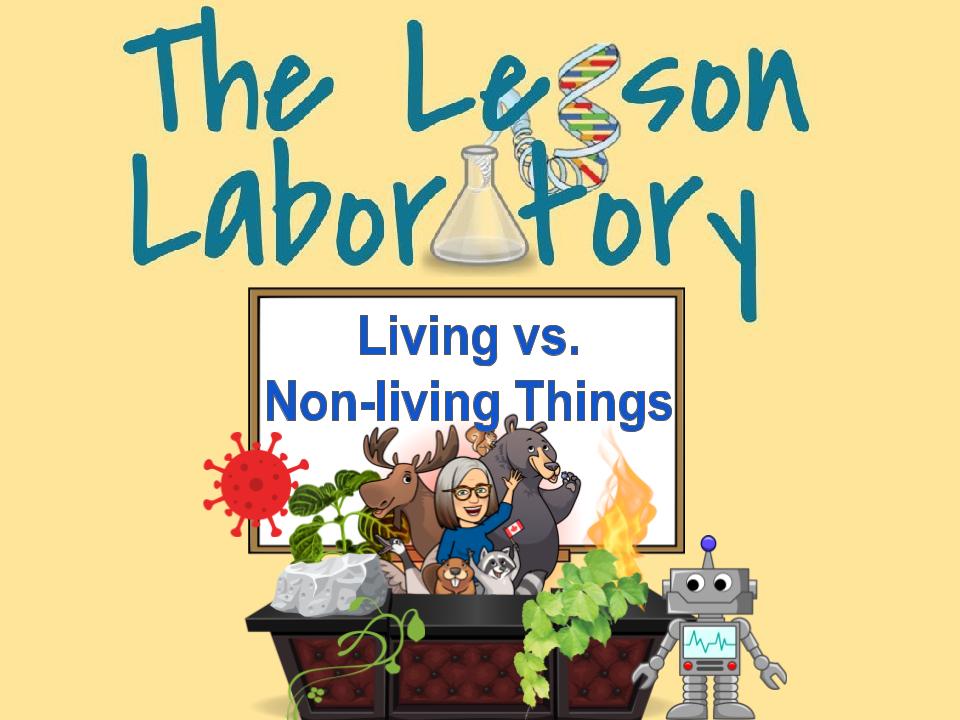
$6.79
$14.99

Free
$10.99

$6.99

$6.99

$6.99

$6.99

$6.99

$8.99
Free

$8.99

$14.99
Similar items

$2.00

$3.00

$7.50

$24.80

$3.50

$4.00

$8.50

$19.60




